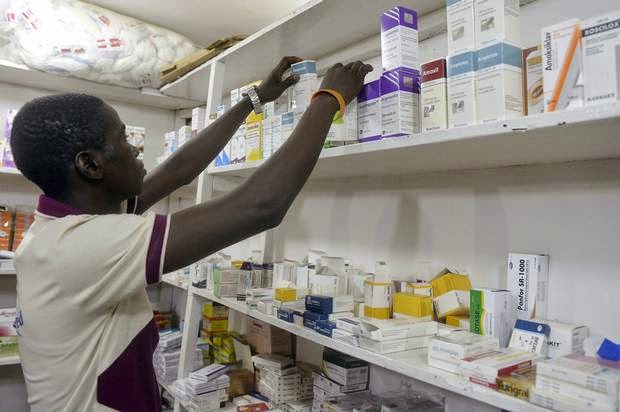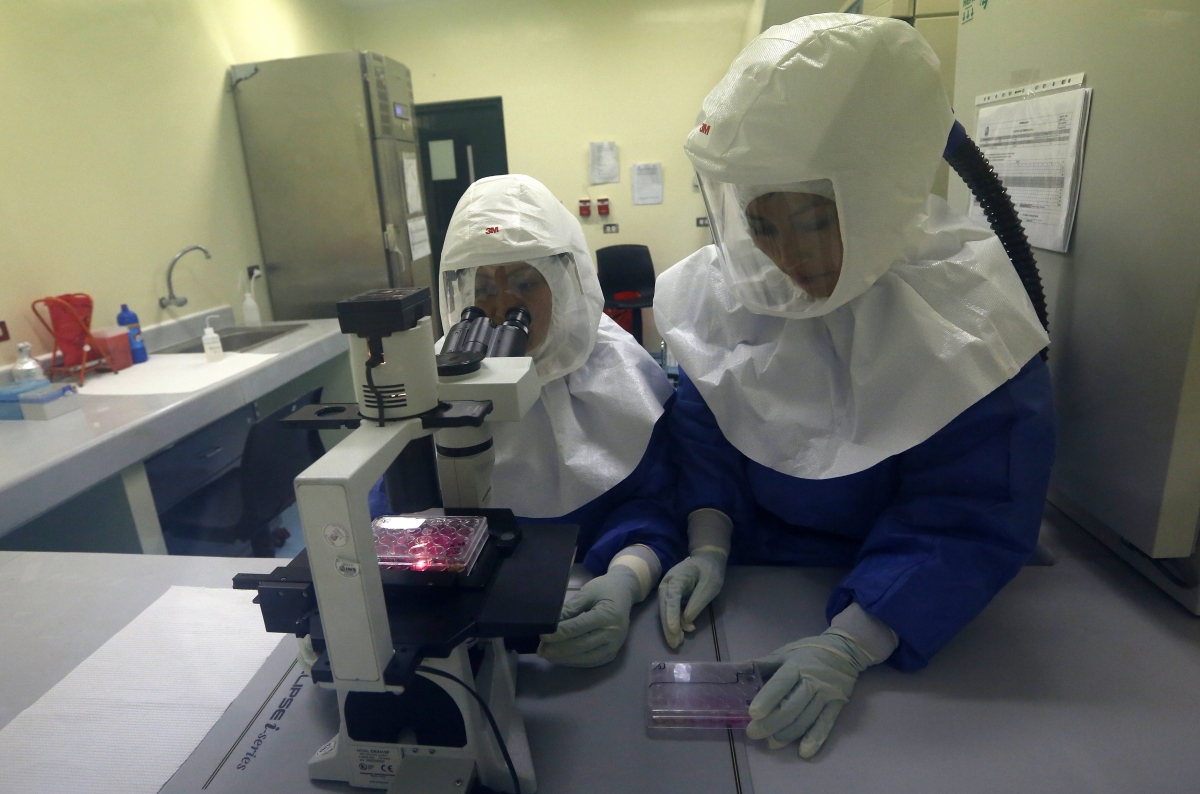The Ebola virus, in the midst of its biggest outbreak on record, is a master at evading the body’s immune system. But researchers at Washington University School of Medicine in St. Louis and elsewhere have learned one way the virus dodges the body’s antiviral defenses, providing important insight that could lead to new therapies.
The virus has infected about 1,800 people since March in four West African nations and killed more than half of them, according to the World Health Organization.
The researchers developed a detailed map of how an Ebola protein, VP24, binds to a host protein that takes signaling molecules in and out of the cell nucleus. Their map revealed that the viral protein takes away the host protein’s ability to carry an important immune signal into the nucleus.
This signal helps activate the immune system’s antiviral defenses, and blocking it is believed to contribute significantly to the virus’s deadliness.
“We’ve known for a long time that infection with Ebola obstructs an important arm in our immune system that is activated by molecules called interferons,” said senior author Gaya Amarasinghe, PhD, assistant professor of pathology and immunology at the School of Medicine. “Now that our map of the combined structure of these two proteins has revealed one critical way Ebola does this, the information it provides will guide the development of new treatments.”
The results appear Aug. 13 in Cell Host & Microbe.
A National Institutes of Health (NIH) grant of up to $15 million, awarded March 1, is helping Amarasinghe and other researchers look for drugs to block VP24 and another Ebola protein, VP35. The group includes researchers at the Icahn School of Medicine at Mount Sinai, Washington University, the University of Texas Southwestern Medical Center, Howard University and Microbiotix Inc., a Massachussetts biopharmaceutical company.
Co-author Christopher Basler, PhD, professor of microbiology at Mount Sinai and the principal investigator of the consortium, was the first to show that VP24 and VP35 were important to the virus’s ability to keep the immune system at bay.
In an earlier paper, Amarasinghe, Basler and others revealed that VP35 blocks production of interferon, one of the main regulators of the innate immune system. This branch of the immune system specializes in fighting viruses.
“Interferon is critical to our ability to defend ourselves against viruses,” Basler said. “It makes a variety of responses to viral infection possible, including the self-destruction of infected cells and the blockage of supplies necessary for viral reproduction.”
In the new study, Amarasinghe and Daisy Leung, PhD, assistant professor of pathology and immunology at Washington University, showed that VP24 tightly binds to a nuclear transporter, a protein that takes molecules into and out of the cell nucleus. Among the molecules these transporters take into the nucleus is STAT1, an important component of the interferon signaling pathway.
“Normally STAT1 is transported into the nucleus and activates the genes for hundreds of proteins involved in antiviral responses,” Leung said. “But when VP24 is attached to some of these transporters, STAT1 can’t get into the nucleus.”
The researchers found that VP24’s action specifically prevents STAT1 transport. Other proteins that travel in and out of the cell nucleus and are important to viral replication likely are unaffected. The scientists already have initiated efforts to look for small molecules that block VP35 and now are applying those same approaches to VP24.
Source: washington university




